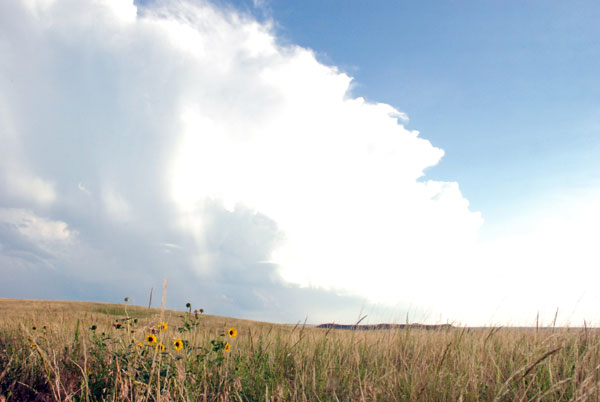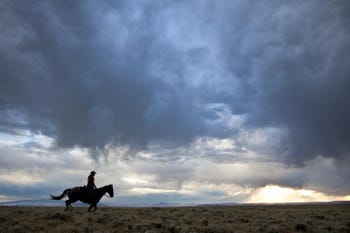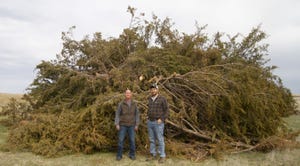6 pieces of practical advice for resolving grazing issues on public land
Red tape and regulations are in abundance these days and often threaten the livelihood of ranching operations. Here are 6 tips from a lobbyist and a lawyer on how to navigate the stressful world of grazing permits on public land from.
January 27, 2016

Without a doubt, the political arena is vastly impacting the way ranchers do business, and with more red tape and regulations threatening the cattle business, it’s important for producers to lobby on behalf of their livelihoods.
During the 23rd Annual Cattlemen’s College, sponsored by Zoetis, and held in conjunction with the 2016 Cattle Industry Convention and Trade Show in San Diego, Calif., NCBA’s Washington, D.C., staff explains how the current regulatory environment is changing the way ranchers can graze on public lands in Western states.
“The current president has used the authority (to dictate changes in federal lands) at least 17 times so far, and we expect another 5-10 designations before his term of office is complete. These designations impact millions of acres and require no vote, no public comment,” explained Ethan Lane, NCBA executive director of public lands.

Photo Credit: Bob Wick for Bureau of Land Management https://www.flickr.com/photos/mypubliclands/24566244726/
And this means that regardless if it’s an issue with the BLM or EPA, litigation and lawsuits are plentiful without any repercussions. What’s worse, environmental pressures involving wild horses, sage grouse, bison and other wildlife can largely determine which public lands remain available for cattle to graze.
The constant pushback, increased regulatory measures and difficult requirements of obtaining grazing permits can be tough to handle. Here are six pieces of advice on how to be successful when dealing with federal agencies in federal grazing contracts:
1. “Create relationships, and make those relationships personal in a lasting, meaningful well,” says Elizabeth Howard, an Oregon-based attorney at Schwabe, Williamson & Wyatt. “Hire really good help and use those individuals to help you succeed. The ranchers who are really successful have good consultants in range and water and have credibility with the EPA. These folks can keep their cool, have relationships with federal agencies, and will work on your behalf. For the longevity of your operation, write these consultants into your budget in order to survive and thrive.”
2. Howard adds, “Join cattlemen’s organizations who can become your allies. Get involved, so you’re educated on the issues and network so you have these resources when issues arise.”
3. “Have a plan for your allotment and know how that plan flows from your private land to federal land,” stresses Howard. “Know your long-term plan for both your public and private land. Then work with outside resources such as Extension who can help review your land and then can become your allies with the public agencies.”
4. “If all else fails, litigate,” she says. “Before you get to litigation, use these other steps first, but if it comes to litigation, those relationships and your quality records, you can make a good case for yourself.”
5. “Remember, the best offense is a good defense,” she says. “Don’t let one bad conversation ruin a relationship.”
6. “Make sure your members of Congress know what you’re dealing with,” adds Lane. “The environmental community does a great job of communicating. Learn who your Congress person’s environmental wellness staffer is in Washington, D.C., and call them every time you have an issue. You will feel like you are bothering them, but you should. Don’t let them pass you off; keep calling, so they know what you are dealing with.”
Are you dealing with grazing issues in your operation? How have you been able to navigate the sometimes tumultuous waters that come with grazing on public lands? Share your experiences in the comment section below.
You might also like:
15 best winter on the ranch photos
2016 market outlook: Here's what to expect
A voice of reason in the Bundy-Hammond debate
7 ranching operations awarded top honors for stewardship, sustainability
About the Author(s)
You May Also Like


.png?width=300&auto=webp&quality=80&disable=upscale)


